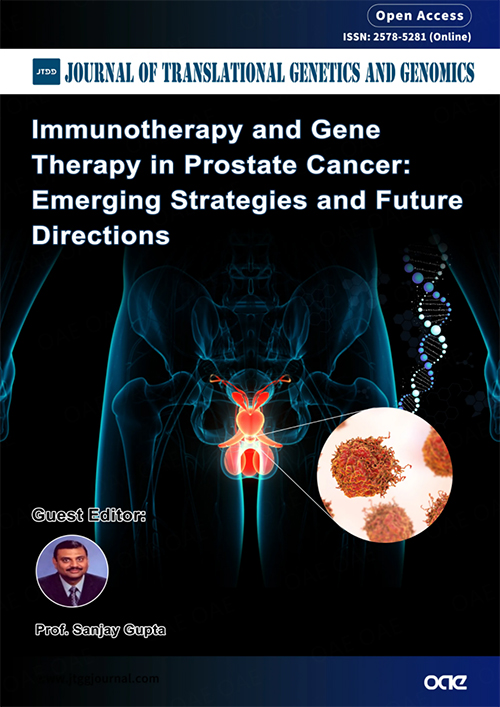Prostate cancer treatment is currently based on surgical removal, radiotherapy, and hormone therapy. In recent years, immunotherapy and gene therapy have emerged as additional therapeutic modes for the treatment of prostate cancer. Gene therapy replaces a disease-causing gene with a healthy copy of the gene, whereas immunotherapy modulates and strengthens an individual’s immune response against cancer. Gene therapy and immunotherapy are emerging options for patients with prostate cancer targeted with immune checkpoint inhibitors, adjuvant therapies and gene editing approaches, establishing a large part of the evolving landscape. With various ongoing trials, the characteristics and premises of the prospective findings will be key in improving outcomes in the future.
The immune system interacts closely with tumors during carcinogenesis and progression to metastasis. The intricate communication between the immune cells and the tumor cells can prevent or promote tumor growth. In recent years, new therapeutic approaches imparting protective immunological mechanisms have shown very promising results by blocking inhibitory signals or by directly activating immunological effector cells. Immune checkpoint blockade with monoclonal antibodies including CTLA-4 and PD-1/PD-L1 has emerged as a successful treatment approach for patients with advanced prostate cancer. Furthermore, gene therapy has also shown promising results in clinical trials. In particular, herpes simplex virus (HSV)-mediated delivery of the HSV thymidine kinase gene to tumor cells in combination with ganciclovir provide a precise suicide gene therapy for destruction of prostate tumors through recruitment of tumor-infiltrating lymphocytes. The development of these novel treatment strategies or a combination of available innovative therapies is critical in improving the efficacy of cancer therapy.
Unfortunately, unlike in many other cancer types, prostate cancer has shown limited response to immunotherapy, as targeting a single immunosuppressive mechanism results in limited clinical efficacy. Likewise, modification or manipulation in the gene expression to alter the biological properties of tumor cells for therapeutic use in prostate cancer has been restrictive. These effects might be likely due to immunosuppressive factors that exist within the prostate cancer tumor microenvironment. Therefore, a clinically important breakthrough in prostate cancer immunotherapy and gene therapy is currently needed based on a deeper understanding of the complex interplay between prostate tumor microenvironment and immunity as well as target gene(s) that might lead to innovative approaches for its treatment.
For this Special Issue in
JTGG, we welcome submissions that investigate the mechanisms that have led to poor responses to immunotherapy and gene therapy in prostate cancer, particularly the causes and factors influencing the immune response and recent advancements in these therapies that have resulted in increased efficiency, extended lifespan and improved quality of life for prostate cancer patients.
Keywords or topics for the Special Issue in JTGG:
1. Challenges in prostate cancer immunotherapy;
2. Immune evasion in prostate cancer;
3. Targets for prostate cancer immunotherapy;
4. The role of immune cells in advance-stage prostate cancer;
5. Immune checkpoint inhibitors and prostate cancer;
6. Immunotherapy failure in prostate cancer;
7. Current status of gene therapy in prostate cancer;
8. Will gene therapy work for prostate cancer?
9. Viral and non-viral gene therapies in prostate cancer;
10. Recent progress in gene therapy in prostate cancer.











